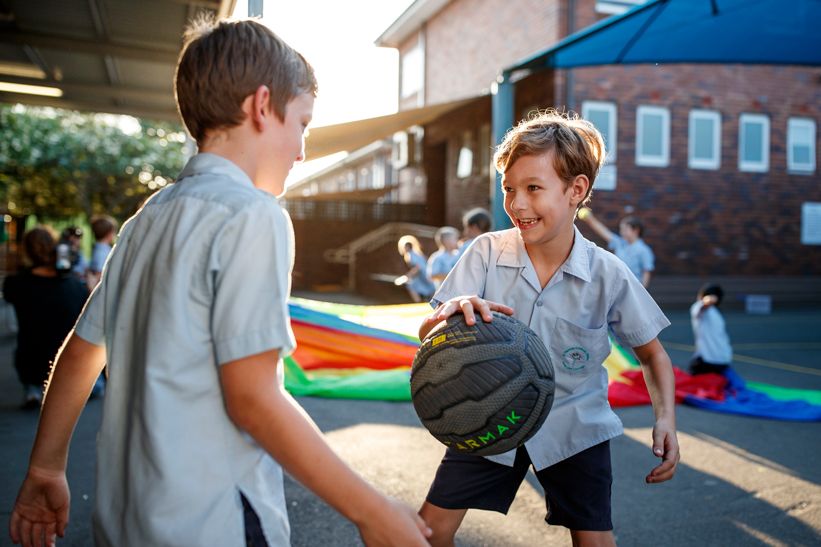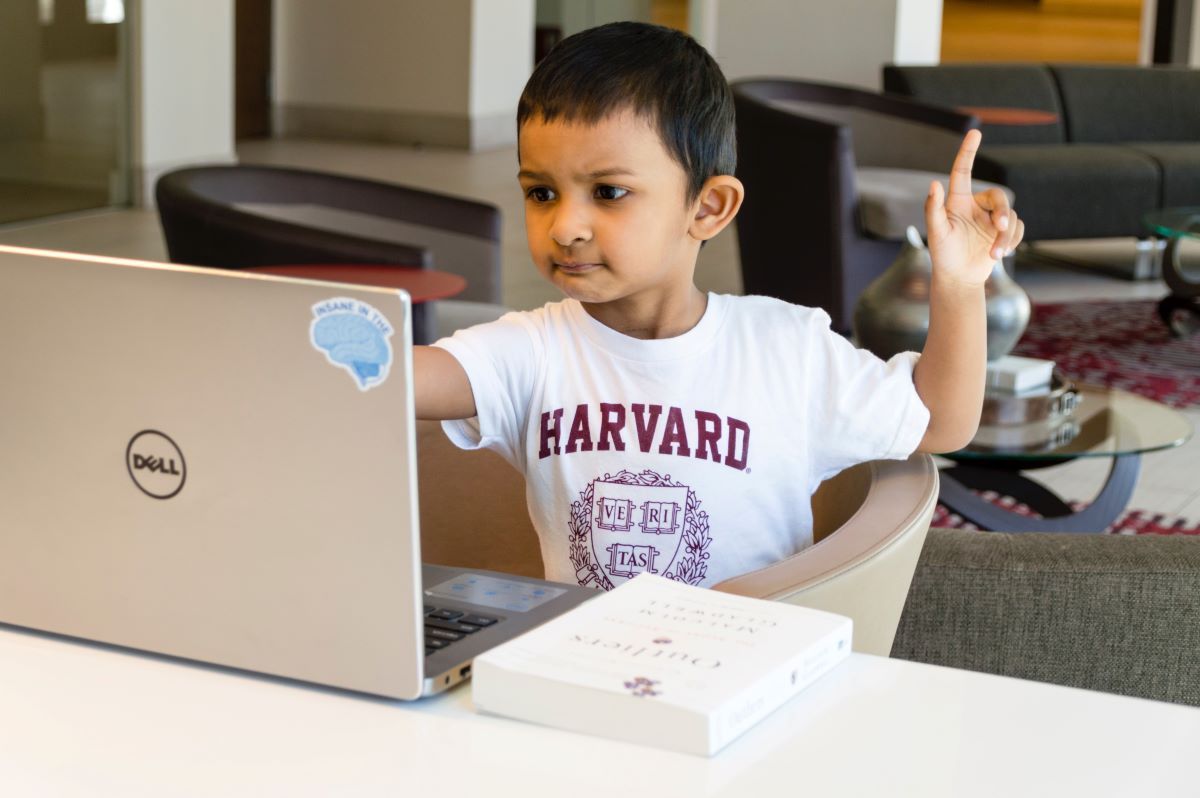News & Blog

News - 07 February 2022
Promoting Positive Online Behaviours for Children
As we begin another school year, it is always a great time to reflect on the role that screens and the digital world play in our lives and in those of the young people in our care. Coinciding with this, is Safer Internet Day, which is also a reminder of the importance of staying safe and looking after the health and wellbeing of everyone online, especially our young people.
The theme of this year's Safer Internet Day is to ‘play it fair online’. Whether we are playing games, commenting, connecting, searching, listening, watching, reading or sharing, everyone deserves to have a fair go online. Everyone deserves to participate in this very global, connected, public and permanent world, free from judgement, prejudice, inequality, harassment, bullying, stalking, abuse or fear. So it is absolutely true that we must continue to teach, to role model and to ensure that positive online behaviours and safety remain a focus.
It is also true that the last couple of years have seen a huge expansion in the role that screens and the digital world have played. The screens provided greater opportunities to learn, to work, to be informed, to connect, to socialise and to be entertained. When so many of the traditional ways of doing these things were taken away, the technology stepped in to fill many of the voids.
As we return to school, to work and to regular activities again, there is also apprehension from many on how they can ensure their young people are able to wean back some of that screentime and to ensure a sense of balance is restored or maintained.
So in order to play it fair online, to stay safe, to maintain mental health and wellbeing, and to return to some more positive and balanced digital habits, there are a few things we can continue to do, as we kick start the year with positive online behaviours.
Take Regular Breaks

Just as we need to have regular time outs on the sporting field, to have half time breaks and time on the bench, we also need to ensure that we experience plenty of breaks from the screens. Both for our physical and mental wellbeing. We need to be injecting regular moments of physical activity and movement and regular times to be looking away from a screen. Our bodies, our brains and even our eyes were not made for the constant processing of information, the relentless pings and notifications, the sedentary lifestyle nor the constant staring at a screen. So incorporate regular reminders to get up and go for a quick walk, have some desk stretches at hand, encourage young people to frequently look away, blink the eyes, close the eyes, and whenever possible immerse oneself in nature and fresh air.
Be Mindful of What Children are Doing on the Screens

Whilst the focus often tends to weigh solely on the amount of time we are spending on a screen, it is far more important that we look at the nature of that screentime and what it is they are actually doing with that time online. Spending an hour on YouTube for example, can look very different and have very different impacts depending on what it is that they are watching. Watching sporting replays, researching an historical event or watching a motivational Ted Talk, is vastly different to watching violence or immersing oneself in fake news or misinformation. Similarly playing an online game may be more about a young person achieving something and feeling a sense of satisfaction and competency, or may be more about connecting with others than it is a mindless time waster. Of course, the type of game, the people they are connecting with on that game, and the impacts that playing has on them, are all far better ways to judge that time online than merely the amount of time. So, it is also helpful to encourage parents and carers to pay attention to what their young people are doing online and become aware of the vastly different experiences the online world serves up.
Look at the Impact and Effect on an Individual
Just as we need to look at the nature of what we are doing online, we also need to look at the impacts those activities are having on individual students. If they are enjoying positive connections online, feeling supported, motivated, challenged, uplifted and informed, then the time spent online is likely to be a positive addition to their day. Of course, if that time online means they are feeling bullied, being abused, feeling afraid, being scammed, groomed or engaging in unsafe or risky practises, then no amount of time on the screens is going to be good for them. We must continue to discuss with young people the importance of critically evaluating their online experiences. To think mindfully about how, where and with whom they are hanging out online. In doing so, we are reminding them of all the things they do have control over when it comes to hanging out online. Ultimately, they get to decide who they connect with, how they engage, whether they respond, what they view, what they share, what they play and with whom they play with. Every time they get online they are making choices that go a long way to ensuring the safety and wellbeing of their experiences. We need to empower them with the knowledge to recognise the impacts and effects of their time online in order to maintain that control.
Talk About What They are Missing Out On
Whilst we know that the technology absolutely filled many of the voids of activity, learning and connection that was taken away, we also know that the technology cannot give us all that we need. We need to ensure we are making time for all of those things that allow young people to function at their best. They need time connecting with others in real life, they need physical activity, they need fresh air and nature, they need downtime to reflect and encourage a curious mind and of course, they need plenty of sleep. Being mindful of how we are spending our days, what we are fitting in, and looking at the trade off for all that time on a screen, can be a helpful reminder of the need to maintain control over how we spend our very precious time and emotional energy.
These screens are not going anywhere fast and will continue to be an integral part of their life and learning. By ensuring our conversations remain relevant, are realistic in their nature and are more about learning from each other than lecturing, then we are going a long way to ensuring the safety and wellbeing of young people in order to enjoy the many benefits the online world has to offer.
Martine Oglethorpe is a Digital Wellbeing and Online Safety Educator, Speaker and Author. She has a background in teaching and a Master of Counselling and is a mother to 5 boys. She presents regularly to schools, parents, students and workplaces on healthy ways to navigate the digital world. She has recently released her new book The Modern Parent: Raising a Great Kid in the Digital World, available from Amazon and on her website http://www.themodernparent.net.
Posted in:
